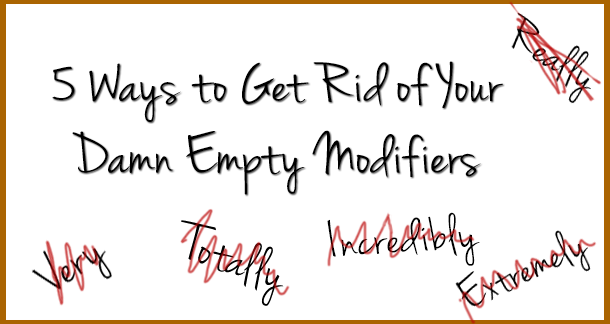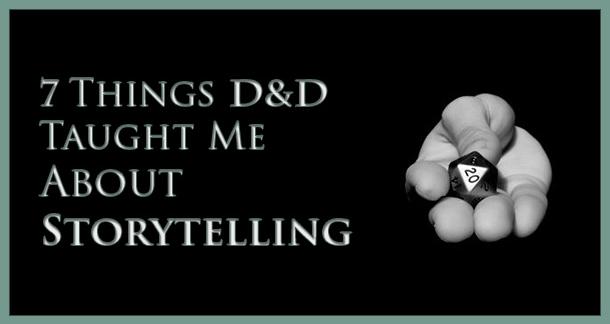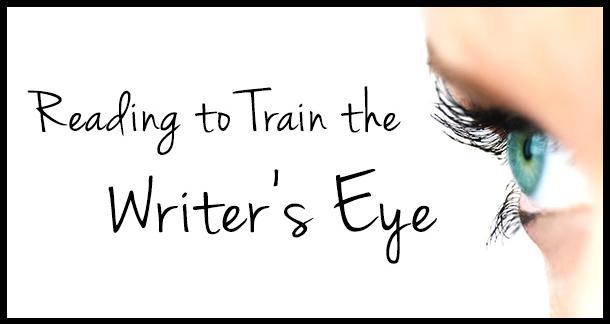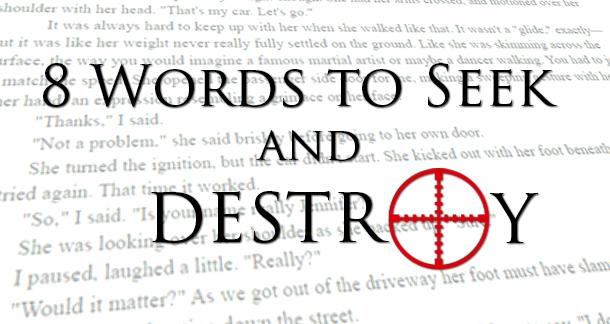Much of the content I write isn’t posted on this blog. To give you the chance to see all the other work I’ve been doing, I wanted to create this post as an ongoing compilation of my off-site content. Here are a few items worth checking out:
 Jesus of Nazareth was many things: motivational speaker, torture victim, trend-setter, political activist, and carpenter, to name just a few. However, while he’s the lead figure in the best-selling book of all time, he didn’t do much writing himself. But what if Jesus did write? What if he were writing today? Let’s take a look at Jesus’s tendencies to see what we can say about how he would approach modern writership.
Jesus of Nazareth was many things: motivational speaker, torture victim, trend-setter, political activist, and carpenter, to name just a few. However, while he’s the lead figure in the best-selling book of all time, he didn’t do much writing himself. But what if Jesus did write? What if he were writing today? Let’s take a look at Jesus’s tendencies to see what we can say about how he would approach modern writership. I discussed the need to get rid of empty emphatics when I gave you 8 words to seek and destroy in your writing, but just saying that you should get rid of a thing doesn’t say much about the right way to do so. Today I’m going to show you a few of my favorite ways to get rid of your empty modifiers.
I discussed the need to get rid of empty emphatics when I gave you 8 words to seek and destroy in your writing, but just saying that you should get rid of a thing doesn’t say much about the right way to do so. Today I’m going to show you a few of my favorite ways to get rid of your empty modifiers. We’ve reached the digital frontier of book publishing, but the implications of living in this new territory are not yet fully understood. If anything’s certain it’s that the next couple decades will see major changes in how we think of books, publishing, marketing, and maybe even writing itself. Here are eight of my predictions about the future of digital publishing.
We’ve reached the digital frontier of book publishing, but the implications of living in this new territory are not yet fully understood. If anything’s certain it’s that the next couple decades will see major changes in how we think of books, publishing, marketing, and maybe even writing itself. Here are eight of my predictions about the future of digital publishing. My years of experience as a Dungeon Master have taught me many valuable lessons, and many of those lessons are specifically applicable to my writing. Here are the seven most significant storytelling lessons I learned from playing Dungeons and Dragons.
My years of experience as a Dungeon Master have taught me many valuable lessons, and many of those lessons are specifically applicable to my writing. Here are the seven most significant storytelling lessons I learned from playing Dungeons and Dragons.
 You want to write better dialogue. You’ve learned a few tricks of the trade. Great work so far, but are you unwittingly sabotaging your work, leaving only stilted, one-dimensional dialogue for your readers? Here are six painfully common ways writers botch their dialogue.
You want to write better dialogue. You’ve learned a few tricks of the trade. Great work so far, but are you unwittingly sabotaging your work, leaving only stilted, one-dimensional dialogue for your readers? Here are six painfully common ways writers botch their dialogue. While Hollywood, prime-time television, and standardized usage have worked hard to create one dialect of English to rule them all, the peculiarities of regions, cultural groups, and individuals persist. In creating a character’s persona on the page, the value of capturing their unique voiceprint can’t be underestimated. However, poor portrayals of dialect can range from distracting to infuriating. Here are six tips on capturing the oddities of a character’s dialect without pissing off (or on) your readers.
While Hollywood, prime-time television, and standardized usage have worked hard to create one dialect of English to rule them all, the peculiarities of regions, cultural groups, and individuals persist. In creating a character’s persona on the page, the value of capturing their unique voiceprint can’t be underestimated. However, poor portrayals of dialect can range from distracting to infuriating. Here are six tips on capturing the oddities of a character’s dialect without pissing off (or on) your readers. Once upon a time our stories ended in happily ever after. Dragons were slain, damsels rescued, glass slippers found, and eternal bliss achieved—usually thanks to a combination of wealth and marriage. Things have changed. While “happily ever after” holds on in a variety of forms, audience expectations have shifted. Readers not only accept but often prefer endings that aren’t entirely happy. Why, as readers and writers in the 21st century, do we shy away from the old expectations of eternal happiness?
Once upon a time our stories ended in happily ever after. Dragons were slain, damsels rescued, glass slippers found, and eternal bliss achieved—usually thanks to a combination of wealth and marriage. Things have changed. While “happily ever after” holds on in a variety of forms, audience expectations have shifted. Readers not only accept but often prefer endings that aren’t entirely happy. Why, as readers and writers in the 21st century, do we shy away from the old expectations of eternal happiness? One of the most often repeated lessons for writers is the importance of reading. However, reading alone is not enough. If you want to read in a way that trains your writer’s eye, active engagement is required. Here are some tips for maximizing your learning during the reading process.
One of the most often repeated lessons for writers is the importance of reading. However, reading alone is not enough. If you want to read in a way that trains your writer’s eye, active engagement is required. Here are some tips for maximizing your learning during the reading process. A deluge of unnecessary content or verbiage can destroy your work. When it’s time to revise your over-written piece, how can you make cuts that avoid castrating it? Take it from a chronic over-writer: Making cuts isn’t an easy process. Here are four strategies I’ve found useful in revising my own work.
A deluge of unnecessary content or verbiage can destroy your work. When it’s time to revise your over-written piece, how can you make cuts that avoid castrating it? Take it from a chronic over-writer: Making cuts isn’t an easy process. Here are four strategies I’ve found useful in revising my own work. Writing regularly is hard; the blank page is intimidating. This entry looks at ways writers can help themselves write consistently. Tips include strategies for group writing, ways to approach daily writing time, ritualizing your writing process, and more.
Writing regularly is hard; the blank page is intimidating. This entry looks at ways writers can help themselves write consistently. Tips include strategies for group writing, ways to approach daily writing time, ritualizing your writing process, and more. Looking to round out your flatter characters? Here are eight ways you can create a more three-dimensional concept for who your character is and what drives them. Tips range from online dating profiles to character theme-songs.
Looking to round out your flatter characters? Here are eight ways you can create a more three-dimensional concept for who your character is and what drives them. Tips range from online dating profiles to character theme-songs. Good flash fiction can be as profound and evocative as longer pieces. By studying flash fiction, you can improve the power of your prose while coming to a greater understanding of where stories earn their emotional weight.
Good flash fiction can be as profound and evocative as longer pieces. By studying flash fiction, you can improve the power of your prose while coming to a greater understanding of where stories earn their emotional weight. How do you stay motivated in the face of a project as daunting as a novel? And how can you avoid that most common pitfall of all?: Abandoning one (or many) partially-finished books. Here are a few tips from my own experience.
How do you stay motivated in the face of a project as daunting as a novel? And how can you avoid that most common pitfall of all?: Abandoning one (or many) partially-finished books. Here are a few tips from my own experience. Love is in the air—visible if you squint through the thick fog of resentment. Sadly, the same combinations of naïve infatuation, forced affection, and bitter isolation are common in writing. How can you fall in love with writing again? Here are six strategies.
Love is in the air—visible if you squint through the thick fog of resentment. Sadly, the same combinations of naïve infatuation, forced affection, and bitter isolation are common in writing. How can you fall in love with writing again? Here are six strategies. You hop on your computer to write. Three hours later, you’re still on Facebook. How can you deal with the modern dilemma of digital dependency, and how can you strategically log off so you can write on? This article explores the question in detail.
You hop on your computer to write. Three hours later, you’re still on Facebook. How can you deal with the modern dilemma of digital dependency, and how can you strategically log off so you can write on? This article explores the question in detail. As soon as a modern tool proves it can make me more effective, I sink my teeth into it. Here are nine tools I’ve found to be especially useful to both my creative writing and my freelance career.
As soon as a modern tool proves it can make me more effective, I sink my teeth into it. Here are nine tools I’ve found to be especially useful to both my creative writing and my freelance career. Overcoming writer’s block isn’t as simple as “just writing.” By understanding writer’s block, you can employ strategies that let you maneuver around the problem, effectively outsmarting this common adversary of writers around the world.
Overcoming writer’s block isn’t as simple as “just writing.” By understanding writer’s block, you can employ strategies that let you maneuver around the problem, effectively outsmarting this common adversary of writers around the world. Perfectionism inhibits creativity and the writing process, and “perfect” writing can feel artificial since it lacks the flaws naturally found in language. For many writers, stories and the writing process improve when they embrace organic word-crafting, using the shit of the first draft to fertilize the drafts yet to come.
Perfectionism inhibits creativity and the writing process, and “perfect” writing can feel artificial since it lacks the flaws naturally found in language. For many writers, stories and the writing process improve when they embrace organic word-crafting, using the shit of the first draft to fertilize the drafts yet to come. Ready your pitchforks! This unironic defense of ‘Twilight’ examines the strengths and weaknesses of the series while encouraging writers to learn from the story’s success.
Ready your pitchforks! This unironic defense of ‘Twilight’ examines the strengths and weaknesses of the series while encouraging writers to learn from the story’s success. Not all metaphors are good, and improper metaphors can be downright criminal. Here are six common ways you’re molesting your metaphors. And you need to stop. You sick bastard.
Not all metaphors are good, and improper metaphors can be downright criminal. Here are six common ways you’re molesting your metaphors. And you need to stop. You sick bastard. Welcome to the 21st century. Are you taking advantage of it? One of today’s most impressive learning hubs is Netflix. When used appropriately, Netflix is one of the most powerful, thorough, and affordable learning hubs for up-and-coming creative writers.
Welcome to the 21st century. Are you taking advantage of it? One of today’s most impressive learning hubs is Netflix. When used appropriately, Netflix is one of the most powerful, thorough, and affordable learning hubs for up-and-coming creative writers. 8 warning signs that you may want to throw your latest manuscript under the lawnmower. Includes a flowchart!
8 warning signs that you may want to throw your latest manuscript under the lawnmower. Includes a flowchart! 8 frequently abused words or phrases that gum up your content. Stars of the show include “suddenly,” “then,” “is,” “started,” “very,” “that,” “like,” and “in order to.”
8 frequently abused words or phrases that gum up your content. Stars of the show include “suddenly,” “then,” “is,” “started,” “very,” “that,” “like,” and “in order to.”The post Meanwhile, Elsewhere on the Internet…. appeared first on Robbie Blair Writes.